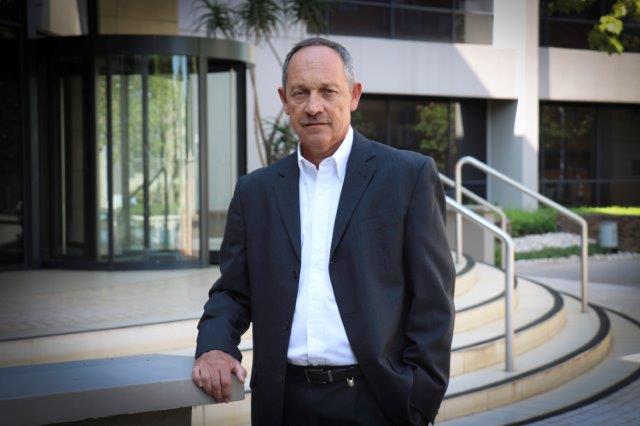
The public transport sector needs to embrace technology in order to meet its users’ needs better and ensure more streamlined integration of services. From tracking and GPS to smartphone payment and rating systems, a lot of efficiency can be introduced into the sector. “The fusion of new technology and people-focused design will lead to integrated, connected, greener, safer and more inclusive transport or mobility.”
This was the message from Zutari CEO Dr. Gustav Rohde in his presentation at the online ITSSA Smart Mobility Conference 2020 from 5 to 7 October. Entitled ‘Re-Imagine Mobility in the Digital Age Beyond Covid-19: Are We Transforming Fast Enough?’, Dr. Rohde highlighted that seven of the 17 UN Sustainable Development Goals relate to the impact of sustainable transport on a society and an economy.
“If we want to create a truly sustainable environment, public transport has a major role to play. People leveraging technology will be the catalyst for the sector to embrace safe, inclusive and smart mobility. We have to see this as an opportunity and not as a threat, as it can only benefit all current stakeholders,” comments Dr. Rohde.
In an age of disruptive technology, from Big Data to the Fourth Industrial Revolution, the engineering industry itself has to embrace rapid change. “Not only are users beginning to look to smart infrastructure and services, but society is also demanding responsible suppliers and service providers. Although there have been significant developments in terms of technology and user expectations, I question whether we are moving fast enough.”
Dr. Rohde points out that it took industry 40 years to fully embrace the benefits and implications of the move from steam to electrical power generation. “Fundamentally industry had to begin to think differently in order to effect such a profound transformation, and the same is true of the impact of digital technology. It is not simply about doing what we have always done in a smarter or more connected manner. It is really about rethinking all of our underlining assumptions and processes.”
A hindrance to such rapid change is a failure to see the bigger picture, highlights Dr. Rohde. “When it comes to the public transport sector, the engineering industry has pockets of skills, from traffic engineering to intelligent transport systems and traffic modellers. In order to truly transform the sector, we need a more holistic approach, especially as integration is a key driver for smart mobility.” This integration and holistic approach further requires working with operators, drivers and, most importantly, the end users.
Integration not only refers to the different modes of public transport available, but also the ability of users to move about freely and safely. “Smart mobility is not about moving people in a smart way. Instead it refers to users experiencing the system as being smart in that it is capable of forecasting and predicting and thereby being perceived as intuitive in response to their personal requirements.”
Dr. Rohde highlights that, for the past two to three decades, the public transport sector in South Africa has been dominated by regulation, often to the detriment of a truly interactive user experience. “Over the years we have slowly started to look more at the role of the operator, and I feel personally that in future it will be much more about people demanding smart mobility solutions that will become a key driver and catalyst for change.”
This change of focus has seen the engineering industry adapt its designs to focus more on end users, a process that Dr. Rohde refers to as a ‘co-engineered impact’. “Often as engineers when we are tasked to design infrastructure, we do not have the end user as the rightful starting point. Our designs will become so much smarter if we adopt a process of co-creation, and this is especially true in the realm of public transport.”
The major issues related to sustainability and an affordable standard of living for all in the developing world are inextricably linked to the issue of safe and affordable public transport. In South Africa, for example, 27.1% of the population spend over 30% of their monthly take-home pay on transportation.
“We have got to question ourselves as an engineering fraternity and as a society as to why the public transport sector is still dominated by unsafe and inefficient practices, with the majority of people forced to use transport solutions that not only are highly unreliable, but where drivers often flout traffic laws.”
Dr. Rohde stresses: “This presents a major opportunity and a challenge for us all to become co-creators. We should all be equally passionate about ensuring that the public transport sector achieves its mandated goals so that it can become an appropriate catalyst for the effective transformation of our society and our economy.”
Zutari recently conducted a major survey into the impact of Covid-19 on sustainable transport in Southern Africa. The survey canvassed 16 heads of several major players in the transport sector, both public and private, six subject matter experts from Zutari itself and 12 young professionals in May and June this year.
It found that the impact across all transport modes has been unprecedented. “Transport’s role in supporting any economy underlines the urgency with which action has been required to mitigate the Covid-19 risk, while ensuring a sustainable transport ecosystem,” concludes Philip Hendricks, Client Director – Transport (Africa) at Zutari.
More news
- PART 2: DESIGN AND CONSTRUCTION OF SLAB-ON-GROUND: APPLYING ACI 318
- DESIGN AND CONSTRUCTION OF SLAB-ON-GROUND: APPLYING ACI 318
- DOK-ING’s innovative electric mining equipment unveiled at ElectraMining
- CONCOR’S MASTERY IN FAST TRACK PROJECT IMPLEMENTATION UNDERSCORED BY SAFETY AWARD
- PROMINENT SEA POINT HOTEL REFURBS WITH REHAU

